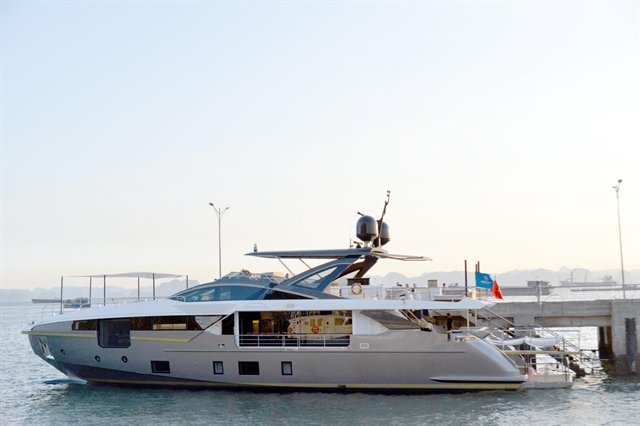Hanoi, December 9, 2024 – The Europe Today: The Ministry of Transport has released a draft decision approving a comprehensive yacht management project aimed at transforming Vietnam into a premier destination for yachting tourism by 2030.
Authored by a 41-member team led by Hoàng Hồng Giang, Deputy Director of the Vietnam Maritime Administration, the proposal outlines strategic measures to produce high-quality yachts, foster regional and global yachting services, and enhance cooperation with international investors and brands.
Regulatory Framework and Pilot Scheme
The ministry aims to finalize a regulatory framework and pilot yacht management operations by the end of 2024. These regulations will cover activity zones, docking areas, and operational responsibilities for ship owners, crew members, captains, and passengers. Specific guidelines for yacht operations in port waters and maritime authority zones will also be implemented.
Seven Key Areas of Reform
From 2025 to 2030, the ministry will focus on institutional reforms in seven core areas:
- Legal Definitions: Adding “yachts” to the Vietnamese Maritime Code and Inland Waterway Traffic Law.
- Operational Regulations: Introducing decrees for yacht management in maritime and inland waterways.
- Infrastructure Planning: Reviewing and optimizing the planning of ports and docking facilities.
- Operational Zones: Designating maritime and inland waterways for Vietnamese and foreign-flagged yachts.
- Investment Policies: Creating mechanisms to attract investments in yacht-related services.
- Port Management: Establishing regulations on port operations and service fees.
- Simplified Procedures: Reducing administrative barriers for yacht registration and seaport operations.
Industry Potential and Expert Insights
Nguyễn Mạnh Hùng, Deputy CEO of Ana Marina Nha Trang Joint Stock Company, noted that Việt Nam’s yacht industry remains in its infancy.
“Since yachts were first imported in 2007–08, the industry has grown slowly, with only about 200 yachts currently in the country, including those meeting international standards,” Hùng said. “This number is far below the industry’s potential.”
He emphasized the need for harmonization between Vietnam’s and international yacht regulations to attract foreign yachts, suggesting a roadmap to address differences in yacht classification, registration, and crew qualifications.
International Practices as Benchmarks
Hùng cited examples from Hong Kong (China) and Singapore to underline best practices. Hong Kong issues certificates of ownership and operating licenses based on inspection results, while Singapore provides operational licenses for domestic yachts and registration certificates for international operations.
“There should be further studies on international standards for crew qualifications and staffing levels to align with global norms,” he said.
Calls for Action
Lưu Văn Đức, CEO of Lưu Gia Shipbuilding Company Limited, welcomed the port planning initiative, highlighting its potential to stimulate yacht tourism. He called for coordinated and continuous efforts to create a favorable environment, suggesting that yacht registration processes be simplified to resemble those for vehicles.
Hùng recommended both short-term and long-term strategies, including immediate adjustments to registration, inspection, and administrative procedures, alongside a comprehensive legal framework to attract investment.
The Ministry of Transport’s proposal, if implemented successfully, is expected to position Vietnam as a competitive player in the global yachting industry, unlocking its significant potential and driving tourism development.














